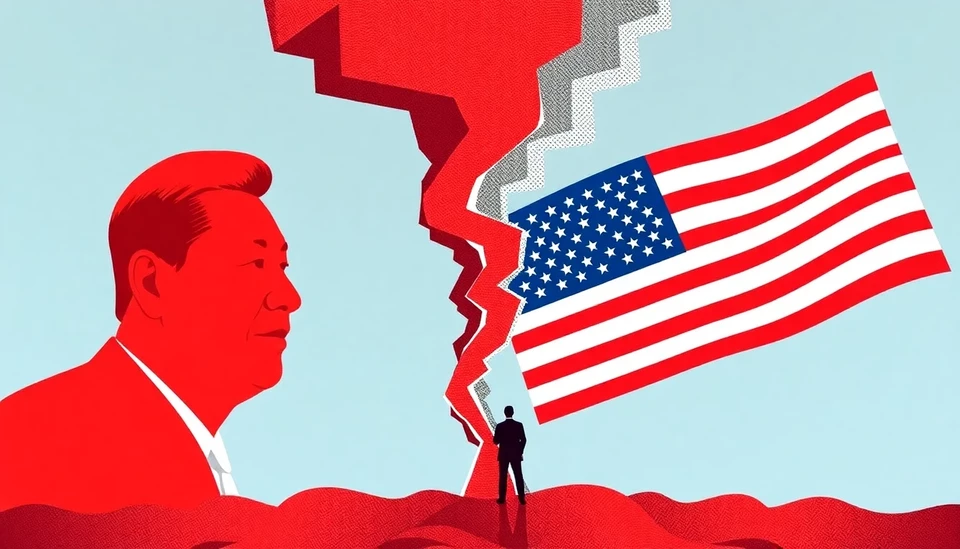
In a continuing saga of economic tensions, China and the United States find themselves entrenched in a deepening trade conflict that suggests neither side is willing to compromise. Following recent diplomatic meetings that failed to yield positive outcomes, both countries are gearing up for what many analysts believe could be a protracted battle over tariffs and trade practices.
The trade war, which escalated significantly over the last few years, has seen both nations imposing retaliatory tariffs on each other's goods, leading to rising prices for consumers and destabilizing international supply chains. Key industries, including technology, agriculture, and manufacturing, have been especially affected, with job losses and reduced corporate earnings becoming increasingly commonplace. Economists warn that if the current trajectory continues, the implications could extend well beyond the borders of these two financial superpowers.
Recent reports indicate that U.S. officials are preparing to introduce new tariffs aimed at Chinese imports, a move that China is likely to counter with its own set of retaliatory measures. This back-and-forth is reminiscent of earlier rounds in the trade war, which began in earnest during the Trump administration and has persisted despite hopes for negotiations under the Biden administration. Experts suggest that economic isolationism is making a comeback as both nations prioritize their domestic industries at the expense of international partnerships.
On the Chinese side, officials have expressed a strong desire to fortify their domestic market, reducing reliance on American goods. This strategy includes boosting local manufacturers and encouraging Chinese consumers to buy national products. Analysts believe that such a shift could prompt further economic fragmentation and a potential decoupling of the two economies.
In a notable development from the United States, President Biden's administration has signaled a commitment to a long-term strategy in its dealings with China. New avenues for negotiations may open following the recent delay in tariff implementations; however, there appears to be no rush to resolve the dispute. Discussions about technology sharing and intellectual property rights remain particularly contentious, with both sides maintaining firm stances on their respective demands.
The implications of this trade war are manifold. It could lead to substantial inflationary pressures within the U.S. as companies pass on increased costs to consumers. For China, sustained tariffs can hinder its growth trajectory, particularly in sectors reliant on exports. Financial markets are already showing signs of strain as investors react to uncertain outcomes, with stock valuations fluctuating based on the latest developments from Washington and Beijing.
As the rhetoric heats up and political leaders face domestic pressures, analysts predict this could lead to a stalemate where both sides are reluctant to back down. Business leaders and consumers alike await the next moves in this economic chess game, where the stakes are high, and the consequences far-reaching.
The world is watching closely as the two largest economies navigate this contentious landscape. Each move they make could define not only their future economic health but also global trade dynamics for years to come.
As the negotiations unfold, one question remains paramount: who will blink first? The outcome of this trade war will significantly influence the global economic environment, with repercussions reaching all corners of the globe.
#TradeWar #ChinaUSRelations #Economy #Tariffs #GlobalTrade #BidenAdministration #EconomicImpact #SupplyChain
Author: Daniel Foster




